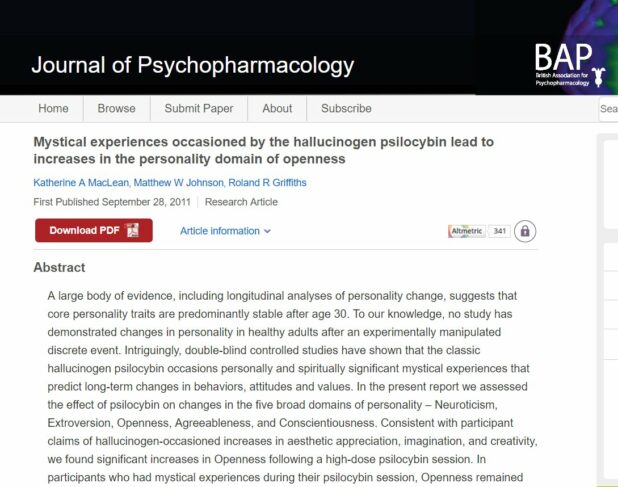Chenae Garcia, a psilocybin therapy facilitator, during a psychedelic-assisted therapy training course run by Fluence in Portland.
If people have problems, we can just give them drugs.
It’s very reasonable and logical.
The curriculum was set, the students were enrolled and Oregon officials had signed off on nearly every detail of training for the first class of “magic” mushroom facilitators seeking state certification.
But as the four-day session got underway inside a hotel conference room in early December, an important pedagogical tool was missing: the mushrooms themselves.
That’s because state officials, two years after Oregon voters narrowly approved the adult use of psilocybin, were still hammering out the regulatory framework for the production and sale of the tawny hallucinogenic fungi.
Instead, the students, most of them seasoned mental health professionals, would have to role play with one another using meditation or intensive breathing practices that could lead to altered states of consciousness — the next best thing to the kind of psychedelic trip they would encounter as licensed guides.
Not that anyone was complaining.
Like many of the two dozen students who paid nearly $10,000 for the course, Jason Wright, 48, a hospital psychiatric nurse in Portland, said he was thrilled to be part of a bold experiment with national implications. “It’s incredible to be on the front lines of something that has the potential to change our relationship with drugs that should never have been criminalized in the first place,” he said.
On Jan. 1, Oregon became the first state in the nation to legalize the adult use of psilocybin, a naturally occurring psychedelic that has shown significant promise for treating severe depression, post-traumatic stress disorder and end-of-life anxiety among the terminally ill, among other mental health conditions.
Although scientists are still working to understand their therapeutic dynamics, psilocybin and other psychedelics are thought to promote neuroplasticity, a rewiring of the brain that gives patients fresh perspectives on longstanding psychiatric problems.
One recent study on alcohol-use disorder, for example, found that two doses of psilocybin paired with talk therapy led to an 83 percent decline in heavy drinking among participants, and that nearly half of them had stopped drinking entirely by the end of the eight-month trial.
The long-term benefits, however, remain unclear.
Measure 109, as it’s called, authorized the creation of psilocybin service centers where anyone over 21 can consume the mushrooms in a supervised setting. One key requirement is that a state-certified facilitator must be present during drug-induced journeys, which can last five or six hours.
Unlike cannabis, which can be sold at dispensaries, Oregon will not allow the retail sale of psilocybin; consumption must take place at a licensed service center.
For drug reform supporters, Oregon’s approval of Measure 109 is nothing short of revolutionary, a seismic policy shift they hope will inspire other states and municipalities — and persuade federal authorities to ease longstanding prohibitions.
Oregon voters also made history in 2020 by decisively voting to decriminalize the personal possession of small amounts of hard drugs like heroin, cocaine and methamphetamine.
Although psilocybin and the other drugs remain illegal at the federal level — a regulatory clash that complicates the state’s headlong embrace of decriminalization — Oregon’s decision to overhaul its relationship with mind-altering compounds is already influencing other jurisdictions.
In November, Colorado voters approved a ballot measure that removes criminal penalties for possessing certain psychedelics, and similar ballot measures and reform legislation have been introduced in New York, Washington and a dozen other states. Over the past three years, Washington D.C., Seattle and a score of American cities have also moved to decriminalize psilocybin.
Mounting scientific interest in psychedelics has reached the highest levels of government. The Food and Drug Administration in 2018 granted psilocybin “breakthrough therapy” status for major depressive disorder, a designation that paved the way for clinical trials. Researchers say they expect full F.D.A. approval in the coming year or two. Another drug with strong therapeutic potential, MDMA, or Ecstasy, is likely to win F.D.A. approval even sooner for treating post-traumatic stress disorder.
Very science.
 Daily Stormer The Most Censored Publication in History
Daily Stormer The Most Censored Publication in History






